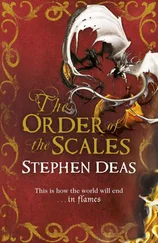3. But when Michal his wife, the daughter of Saul, came and stood by him, she wished him all other happiness, and entreated that whatsoever he should further desire, to the utmost possibility, might be given him by God, and that he might be favorable to him; yet did she blame him, that so great a king as he was should dance after an unseemly manner, and in his dancing, uncover himself among the servants and the handmaidens. But he replied, that he was not ashamed to do what was acceptable to God, who had preferred him before her father, and before all others; that he would play frequently, and dance, without any regard to what the handmaidens and she herself thought of it. So this Michal, who was David's wife, had no children; however, when she was afterward married to him to whom Saul her father had given her, (for at this time David had taken her away from him, and had her himself,) she bare five children. But concerning those matters I shall discourse in a proper place.
4. Now when the king saw that his affairs grew better almost every day, by the will of God, he thought he should offend him, if, while he himself continued in houses made of cedar, such as were of a great height, and had the most curious works of architecture in them, he should overlook the ark while it was laid in a tabernacle, and was desirous to build a temple to God, as Moses had predicted such a temple should be built. 3And when he had discoursed with Nathan the prophet about these things, and had been encouraged by him to do whatsoever he had a mind to do, as having God with him, and his helper in all things, he was thereupon the more ready to set about that building. But God appeared to Nathan that very night, and commanded him to say to David, 4that he took his purpose and his desires kindly, since nobody had before now taken it into their head to build him a temple, although upon his having such a notion he would not permit him to build him that temple, because he had made many wars, and was defiled with the slaughter of his enemies; that, however, after his death, in his old age, and when he had lived a long life, there should be a temple built by a son of his, who should take the kingdom after him, and should be called Solomon, whom he promised to provide for, as a father provides for his son, by preserving the kingdom for his son's posterity, and delivering it to them; but that he would still punish him, if he sinned, with diseases and barrenness of land. When David understood this from the prophet, and was overjoyful at this knowledge of the sure continuance of the dominion to his posterity, and that his house should be splendid, and very famous, he came to the ark, and fell down on his face, and began to adore God, and to return thanks to him for all his benefits, as well for those that he had already bestowed upon him in raising him from a low state, and from the employment of a shepherd, to so great dignity of dominion and glory; as for those also which he had promised to his posterity; and besides, for that providence which he had exercised over the Hebrews in procuring them the liberty they enjoyed. And when he had said thus, and had sung a hymn of praise to God, he went his way.
1It deserves here to be remarked, that Saul very rarely, and David very frequently, consulted God by Urim; and that David aimed always to depend, not on his own prudence or abilities but on the Divine direction, contrary to Saul's practice. See sect. 2, and the note on Antiq. B. III. ch. 8. sect. 9; and when Saul's daughter, (but David's wife,) Michal, laughed at David's dancing before the ark, 2 Samuel 6:16, &c., and here, sect. l, 2, 3, it is probable she did so, because her father Saul did not use to pay such a regard to the ark, to the Urim there inquired by, or to God's worship before it, and because she thought it beneath the dignity of a king to be so religious.
2Josephus seems to be partly in the right, when he observes here that Uzzah was no priest, (though perhaps he might be a Levite,) and was therefore struck dead for touching the ark, contrary to the law, and for which profane rashness death was the penalty by that law, Numbers 4:15, 20. See the like before, Antiq. B. VI. ch. 1. sect. 4. It is not improbable that the putting this ark in a cart, when it ought to have been carried by the priests or Levites, as it was presently here in Josephus so carried from Obededom's house to David's, might be also an occasion of the anger of God on that breach of his law. See Numbers 4:15; 1 Chronicles 15:13.
3Josephus here informs us, that, according to his understanding of the sense of his copy of the Pentateuch, Moses had himself foretold the building of the temple, which yet is no where, that I know of, in our present copies. And that this is not a mistake set down by him unwarily, appears by what he observed before, on Antiq. B. IV. ch. 8. sect. 46, how Moses foretold that, upon the Jews' future disobedience, their temple should be burnt and rebuilt, and that not once only, but several times afterward. See also Josephus's mention of God's former commands to build such a temple presently, ch. 14. sect. 2, contrary to our other copies, or at least to our translation of the Hebrew, 2 Samuel 7:6, 7; 1 Chronicles 17:5, 6.
4Josephus seems, in this place, with our modern interpreters to confound the two distinct predictions which God made to David and to Nathan, concerning the building him a temple by one of David's posterity; the one belongeth to Solomon, the other to the Messiah; the distinction between which is of the greatest consequence to the Christian religion.
CHAPTER 5
How David Brought Under The Philistines, And The Moabites, And The Kings Of Sophene And Of Damascus, And Of The Syrians As Also The Idumeans, In War; And How He Made A League With The King Of Hamath; And Was Mindful Of The Friendship That Jonathan, The Son Of Saul, Had Borne Him
Table of Contents
1. A Litlle while after this, he considered that he ought to make war against the Philistines, and not to see any idleness or laziness permitted in his management, that so it might prove, as God had foretold to him, that when he had overthrown his enemies, he should leave his posterity to reign in peace afterward: so he called together his army again, and when he had charged them to be ready and prepared for war, and when he thought that all things in his army were in a good state, he removed from Jerusalem, and came against the Philistines; and when he had overcome them in battle, and had cut off a great part of their country, and adjoined it to the country of the Hebrews, he transferred the war to the Moabites; and when he had overcome two parts of their army in battle, he took the remaining part captive, and imposed tribute upon them, to be paid annually. He then made war against Iadadezer, the son of Rehob, king of Sophene; 1and when he had joined battle with him at 'the river Euphrates, he destroyed twenty thousand of his footmen, and about seven thousand of his horsemen. He also took a thousand of his chariots, and destroyed the greatest part of them, and ordered that no more than one hundred should be kept. 2
2. Now when Hadad, king of Damascus and of Syria, heard that David fought against Hadadezer, who was his friend, he came to his assistance with a powerful army, in hopes to rescue him; and when he had joined battle with David at the river Euphrates, he failed of his purpose, and lost in the battle a great number of his soldiers; for there were slain of the army of Hadad twenty thousand, and all the rest fled. Nicelens also (of Damascus) makes mention of this king in the fourth book of his histories; where he speaks thus: "A great while after these things had happened, there was one of that country whose name was Hadad, who was become very potent; he reigned over Damascus, and, the other parts of Syria, excepting Phoenicia. He made war against David, the king of Judea, and tried his fortune in many battles, and particularly in the last battle at Euphrates, wherein he was beaten. He seemed to have been the most excellent of all their kings in strength and manhood," Nay, besides this, he says of his posterity, that "they succeeded one another in his kingdom, and in his name;" where he thus speaks: "When Hadad was dead, his posterity reigned for ten generations, each of his successors receiving from his father that his dominion, and this his name; as did the Ptolemies in Egypt. But the third was the most powerful of them all, and was willing to avenge the defeat his forefather had received; so he made an expedition against the Jews, and laid waste the city which is now called Samaria." Nor did he err from the truth; for this is that Hadad who made the expedition against Samaria, in the reign of Ahab, king of Israel, concerning whom we shall speak in due place hereafter.
Читать дальше












